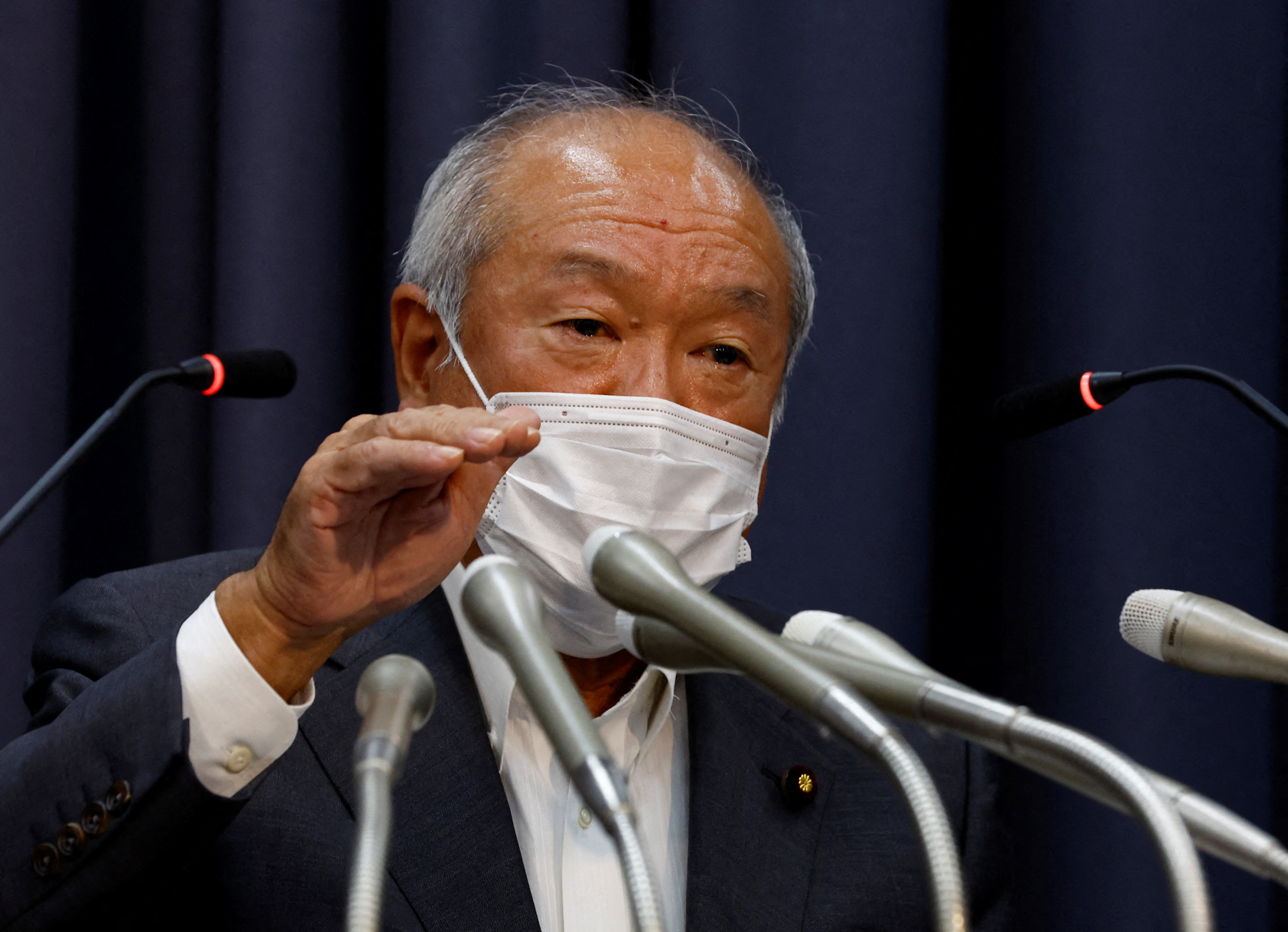Summary
- Japan finances heightened severity to unprecedented point
- Rounds of extra budget, stimulus measures intensify finances
- Public finance is the backbone of a country’s trust – finmin
- Economic resuscitation comes first before fiscal reform in the long run
- Parliament debate starts, all eyes on new BOJ governor nominee
Japan finances are becoming increasingly critical, Finance Minister Shunichi Suzuki cautioned on Monday, just as markets test whether the central bank can hold interest rates at ultra-low levels, enabling the government to service its debt.
The government has been aided by near-zero bond yields, but bond investors have recently tried to break the Bank of Japan’s (BOJ) 0.5% cap on the 10-year bond yield, as inflation remains at 41-year highs, twice the central bank’s 2% goal.

“Japan’s public finances have increased in severity to an unprecedented degree as we have compiled supplementary budgets to respond to the coronavirus and similar issues,” Suzuki said in a policy speech starting a session of parliament.
It is common for the finance minister to point to Japan’s strained finances. Despite the country’s rising debt pile, the government stays under pressure to keep the fiscal spigot wide open. Japan must balance regional security concerns over Russia, China, and North Korea, and deal with a debt burden more than double the size of its $5 trillion economy – by far the largest burden in the industrialized world.
Market displayed little reaction to Suzuki’s speech, in which he described the details of the coming fiscal year’s state budget worth a record 114.4 trillion yen ($878.9 billion).
Suzuki restated the government’s aim to accomplish an annual budget surplus – excluding debt servicing costs and new bond sales – in the fiscal year to March 2026. The government, however, has failed to hit budget-balancing targets for a decade.
The Ministry of Finance establishes that every 1-percentage-point increase in interest rates would increase debt service by 3.7 trillion yen to 32.5 trillion yen for the 2025/2026 fiscal year.
“The government will strive to stably manage Japanese government bond (JGBs) issuance through close communication with the market,” he said.
Buy Crypto Now“Overall JGB issuance, including rolling over bonds, remains at an extremely high level worth about 206 trillion yen. We will step up efforts to keep JGB issuance stable.”
“Public finance is the cornerstone of a country’s trust. We must secure fiscal space under normal circumstances to safeguard trust in Japan and people’s livelihood at a time of emergency.”
Labour Reform
Prime Minister Fumio Kishida echoed Suzuki’s resolve to resuscitate the economy and address fiscal reform. He underlined the need for a positive cycle of growth led by private consumption and corporate profits, which makes up more than half of the economy.
“Wage hikes hold the key to this virtuous cycle,” Kishida said in his policy speech. He promised to push labour reform to create a structure that allows sustainable wage growth and deal with the pain of surging living costs.
“First of all, we need to realize wage growth that exceeds price increases,” Kishida added, pledging to also improve childcare support, and push investment and reform in areas such as green and digital transformation.
($1 = 129.5700 yen)








